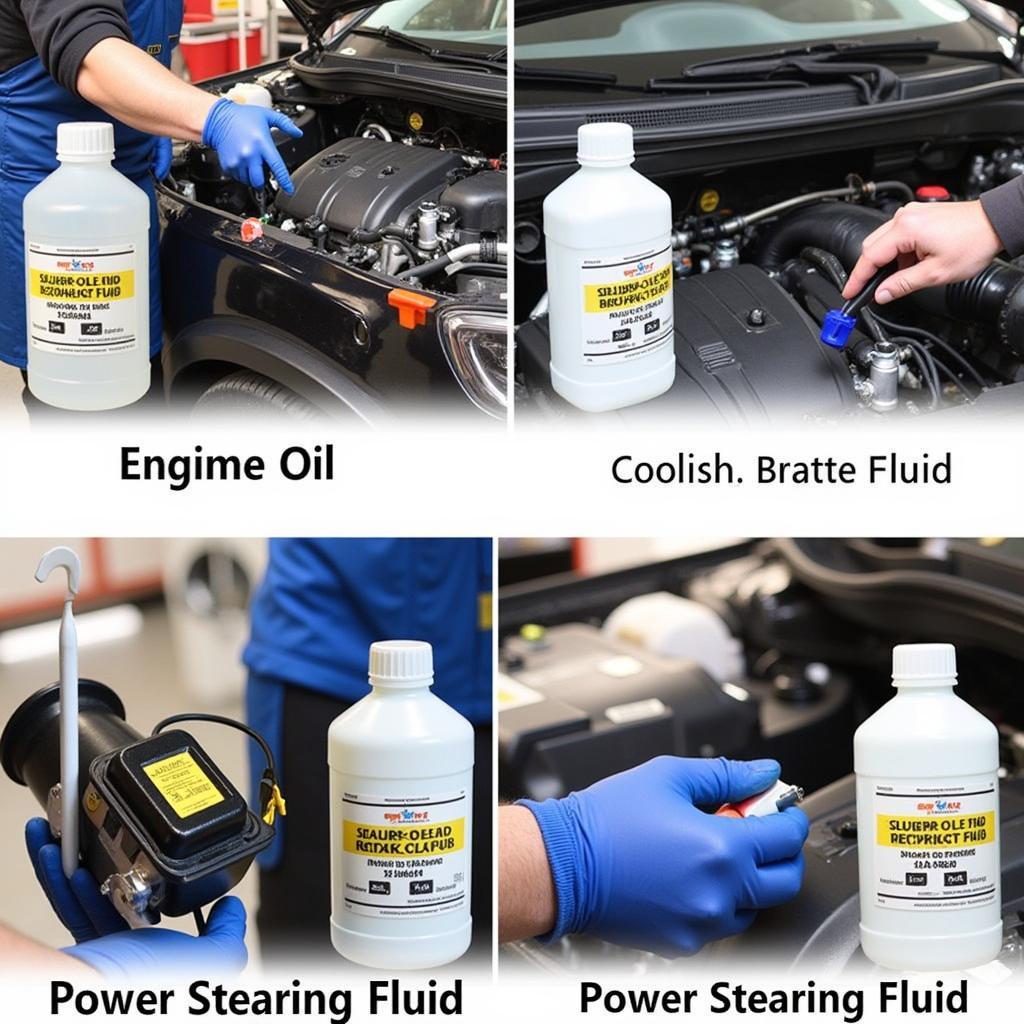Periodic Car Maintenance is the cornerstone of a vehicle’s longevity, performance, and safety. Neglecting regular upkeep can lead to costly repairs, decreased fuel efficiency, and even dangerous driving conditions. This guide provides car owners, mechanics, and technicians with a comprehensive understanding of periodic car maintenance, empowering you to keep your vehicle in peak condition. After reading this, check out our car periodic maintenance service page for more information.
Why Periodic Car Maintenance Matters
Regular car maintenance goes beyond simply keeping your car running smoothly. It’s about proactive care that prevents major problems down the road, ensuring your safety and saving you money in the long run. A well-maintained vehicle retains its value better, offers a more enjoyable driving experience, and contributes to a healthier environment by reducing emissions.
Understanding Your Car’s Maintenance Schedule
Every vehicle comes with a recommended maintenance schedule outlined in the owner’s manual. This schedule specifies the necessary services based on mileage intervals or time elapsed, whichever comes first. While these schedules provide a good starting point, factors like driving conditions and climate can influence the frequency of certain maintenance tasks. For example, driving in harsh conditions like extreme heat or cold might necessitate more frequent oil changes. You can download a handy checklist for car maintenance pdf to help you stay organized.
 Checking Car Fluids
Checking Car Fluids
Key Periodic Car Maintenance Tasks
Several essential maintenance tasks should be performed regularly to ensure optimal vehicle performance. These include:
- Oil Changes: Regular oil changes are vital for lubricating the engine’s moving parts, reducing friction, and preventing overheating.
- Filter Replacements: Replacing air, oil, and fuel filters at recommended intervals ensures clean airflow to the engine, removes contaminants from the oil, and prevents fuel system clogs.
- Brake Inspections: Regular brake inspections are crucial for safety, ensuring that brake pads, rotors, and calipers are in good working order.
- Tire Rotations and Balancing: Rotating tires helps ensure even wear and tear, extending their lifespan. Balancing prevents vibrations and improves handling.
- Fluid Checks and Top-offs: Regularly checking and topping off essential fluids, such as coolant, brake fluid, and power steering fluid, helps maintain proper system function. For specific information about your AC unit, consider reading our guide on car air conditioner periodic maintenance.
- Battery Testing: Periodic battery testing ensures the battery is holding a charge and starting the engine reliably.
- Spark Plug Replacement: Replacing spark plugs as recommended helps maintain optimal engine performance and fuel efficiency.
How Often Should I Perform Periodic Car Maintenance?
While your owner’s manual provides a baseline, you can also consider a few general guidelines:
- Every 3,000-5,000 miles: Oil and filter changes.
- Every 15,000-30,000 miles: Check and replace air filters, spark plugs, and other components as needed.
- Every 30,000-60,000 miles: More extensive inspections, including brake system checks and fluid flushes.
Remember, these are just guidelines. Your specific needs may vary based on driving habits and environmental factors. Don’t forget to check our resource on AA basic car maintenance for more tips.
What Happens if I Neglect Periodic Car Maintenance?
Neglecting periodic car maintenance can have serious consequences. Ignoring regular oil changes can lead to engine damage. Worn brake pads can compromise stopping power. Overlooked fluid leaks can cause system failures. These issues not only jeopardize your safety but also result in expensive repairs down the line.
“Regular maintenance is like brushing your teeth for your car. It might seem small, but it makes a huge difference in the long run,” says automotive expert, Robert Johnson, ASE Certified Master Technician.
Periodic Car Maintenance: DIY vs. Professional Service
While some maintenance tasks, like checking fluids and changing air filters, can be done at home, others require specialized tools and expertise. For complex repairs or if you lack the time or inclination, it’s always best to consult a qualified mechanic.
“A professional mechanic can diagnose potential issues early on, preventing small problems from escalating into major headaches,” adds Susan Miller, automotive engineer and consultant.
Conclusion
Periodic car maintenance is an investment in your vehicle’s longevity, performance, and safety. By following a regular maintenance schedule and addressing issues promptly, you can avoid costly repairs, enhance fuel efficiency, and ensure a safe and enjoyable driving experience. Remember, consistent periodic car maintenance is the key to keeping your car on the road for years to come.
Need assistance with your car maintenance? Connect with us at AutoTipPro. Call us at +1 (641) 206-8880 or visit our office at 500 N St Mary’s St, San Antonio, TX 78205, United States.
FAQs
- What is the most important periodic car maintenance task? Regular oil changes are crucial for engine health and longevity.
- How often should I rotate my tires? Generally, tire rotation is recommended every 5,000-7,500 miles.
- Can I use any type of oil for my car? No, always use the oil type recommended in your owner’s manual.
- What are the signs of worn brake pads? Squealing or grinding noises, a spongy brake pedal, and reduced braking performance.
- How can I improve my car’s fuel efficiency? Regular maintenance, proper tire inflation, and efficient driving habits.
- What should I do if my check engine light comes on? Consult a qualified mechanic as soon as possible.
- Is it necessary to follow the manufacturer’s maintenance schedule? Yes, following the manufacturer’s schedule ensures your car is properly maintained and can help maintain your warranty.




Leave a Reply